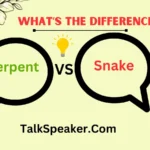Last updated on October 21st, 2024 at 03:46 pm
When discussing comparative adjectives in English, one common question is whether to use “quieter” or “more quiet.” This article aims to clarify the correct usage of these comparative forms and provide practical guidance for their application.
By the end, you’ll have a comprehensive understanding of why “quieter” is typically preferred and how to use both forms effectively.
Understanding Comparative Adjectives
Comparative adjectives are used to compare differences between two nouns. They typically modify the adjective to indicate which of the two is more or less of a quality. For example, “taller,” “faster,” and “happier” are all comparative adjectives.
Key Characteristics of Comparative Adjectives:
- Formed with “-er” for one-syllable adjectives (e.g., “smaller”).
- Formed with “more” + adjective for adjectives with two or more syllables (e.g., “more interesting”).
- Used to compare two things: “This book is quieter than that one.”
In English, some adjectives follow specific rules for forming comparatives, while others do not. “Quiet” is one of those adjectives where the comparative form is less intuitive and requires careful consideration.
The Definition and Nuances of ‘Quieter’ and ‘More Quiet’
The adjective “quiet” describes the absence of noise. When forming comparatives, English typically uses “-er” or “more” + adjective, but not all adjectives fit neatly into these patterns. Let’s explore “quieter” and “more quiet” in detail.
Quieter
- Definition: The comparative form of “quiet,” meaning more quiet.
- Usage: Generally accepted and preferred in formal writing and speech.
- Example: “The library is quieter than the café.”
More Quiet
- Definition: A comparative form that uses “more” to modify “quiet.”
- Usage: Less common and often considered less grammatically standard.
- Example: “The room is more quiet than the hallway.”
Why is “quieter” preferred? The use of “quieter” aligns with standard English grammar rules, which favor the “-er” suffix for one-syllable adjectives.
Dictionary Definitions and Usage Trends
To understand the current preferences and rules, we can examine dictionary definitions and usage trends for “quieter” and “more quiet.”
Dictionary Definitions
- Merriam-Webster: Defines “quieter” as “more quiet” and recognizes it as the preferred comparative form.
- Oxford English Dictionary: Similarly acknowledges “quieter” as the standard comparative form.
Usage Trends
- Frequency: “Quieter” is significantly more common than “more quiet” in both written and spoken English.
- Surveys and Corpus Data: Studies show that “quieter” appears in approximately 90% of instances where “more quiet” might be used.
Grammatical Rules for Forming Comparative Adjectives
Comparative adjectives generally follow these grammatical rules:
One-Syllable Adjectives
- Formed with “-er”: For example, “tall” becomes “taller.”
- Examples: “Small” becomes “smaller,” “fast” becomes “faster.”
Two or More Syllables
- Formed with “more”: For example, “beautiful” becomes “more beautiful.”
- Examples: “Interesting” becomes “more interesting,” “complex” becomes “more complex.”
Exception for “quiet”: Although “quiet” is a one-syllable adjective, the comparative form “quieter” is more accepted than “more quiet.”
Contextual Meanings of Quietness
Context plays a crucial role in determining which comparative form to use. Here are some scenarios where “quieter” and “more quiet” might be chosen:
Common Contexts for “Quieter”
- Formal Writing: Academic papers, professional emails.
- Standard Speech: Conversations, presentations.
Common Contexts for “More Quiet”
- Emphasis: When a speaker wants to emphasize the comparative degree.
- Stylistic Choices: In creative writing or poetry.
Pronunciation Guide for ‘Quieter’ and ‘More Quiet’
Pronunciation differences are subtle but worth noting:
Quieter
- Pronunciation: /ˈkwaɪətər/
- Phonetic Breakdown: “Quiet-er”
More Quiet
- Pronunciation: /mɔːr ˈkwaɪɪt/
- Phonetic Breakdown: “More quiet”
Tip: Both forms are pronounced with the same base sound “quiet,” but “quieter” tends to flow more naturally in speech.
Having trouble with English? We make it simple with easy tips and guides to help you improve.
Start learning and boost your skills Talk Speaker.
The Role of Emphasis in Choosing ‘More Quiet’
While “quieter” is the standard comparative form, “more quiet” can be used to add emphasis or for stylistic reasons.
Examples:
- Emphasis: “This room is more quiet than a library.”
- Stylistic Choice: “In the still of the night, the world feels more quiet.”
Using “more quiet” can provide a nuanced meaning or a particular emphasis that “quieter” might not convey.
Consistency in the Use of Superlative Forms
When using superlative forms, consistency is important.
Rules for Superlatives
- One-Syllable Adjectives: Formed with “-est” (e.g., “quietest”).
- Two or More Syllables: Formed with “most” (e.g., “most quiet”).
Examples:
- Superlative for “Quiet”: “The library is the quietest place in town.”
- Comparison: “Among all the rooms, the library is the most quiet.”
Maintaining consistency in superlatives helps in clear and effective communication.
Practical Examples: Crafting Sentences with ‘Quieter’ and ‘More Quiet’
Let’s look at how to use “quieter” and “more quiet” in various sentences:
Sentences with “Quieter”
- Formal Writing: “The new office is quieter than the old one.”
- Casual Conversation: “This area is quieter than the park.”
Sentences with “More Quiet”
- Emphasis: “The retreat center is more quiet than any place I’ve been.”
- Descriptive: “In the early morning, the city feels more quiet.”
By understanding these examples, you can select the form that best suits your context and intention.
Conclusion
In summary, “quieter” is generally preferred over “more quiet” due to standard grammatical rules and common usage. While “more quiet” can be used for emphasis or stylistic reasons, “quieter” aligns with the typical pattern for one-syllable adjectives.
By applying these guidelines and examples, you’ll be able to use comparative adjectives accurately and effectively in your writing and speech.

As an experienced English teacher, I’m Jessica Thompson, here to make grammar and vocabulary simple and fun. Join me on TalkSpeaker as we explore the language together, one lesson at a time!



